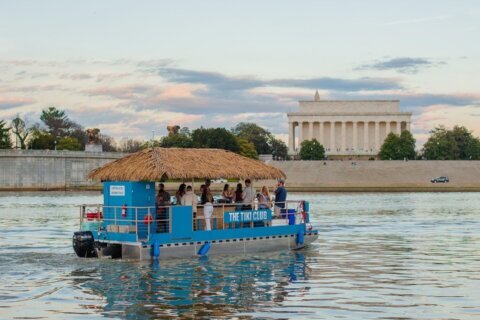You may have never heard of “aquamation” or “flameless cremation.” It is a new, greener alternative to cremation that may soon be available in the D.C. area. A bill is now in front of Maryland’s legislature to allow and regulate the practice.
Alkaline hydrolysis or aquamation place the deceased in a steel vessel that is filled with warm water and an alkaline solution that quickly decomposes the body in just a few hours. Ultimately, leaving just ashes.
It is an option that many in more than a dozen states now choose to use, especially those who are concerned about the environment. Aquamation uses a fraction of the energy, does not depend on fossil fuels and releases almost no carbon dioxide.
“It still celebrates their lives. It gives them a very fitting and very honorable way to leave the Earth, but it does not have the carbon impact,” said Adrian Gardner, the co-founder of Green Legacy, a startup that hopes to offer the services in the D.C. region.
According to EarthFuneral, “One cremation is estimated to produce 535 pounds of carbon dioxide. This is the equivalent of a 609-mile car journey in an average-size car.”
While it was thought to be already legal in Maryland, a recent opinion from the state’s Attorney General stated alkaline hydrolysis is “generally illegal in Maryland.”
The nearest state that offers the practice is North Carolina.
“Quite literally, we’re connecting people from Baltimore with providers in North Carolina,” Gardner said. “That, frankly, makes zero sense because we have the ability to service those customers.”
He is a large supporter of legislation that is now going through Maryland to legalize aquamation for funeral providers.
“The trend is moving this way,” he said. “On some level, the question becomes, ‘Why are Maryland and Virginia going to be left behind?’”
Gardner said this new practice will not replace traditional burials or cremations, instead, “This is all about adding options.”
He pointed to the late Bishop Desmond Tutu of South Africa who was aquamated after his death.
“The last thing he left on Earth was not going to be another ton of carbon,” he said.
Virginia also saw a similar bill that would legalize alkaline hydrolysis but it ultimately failed to pass through the state Senate on a final vote Monday afternoon.
Get breaking news and daily headlines delivered to your email inbox by signing up here.
© 2024 WTOP. All Rights Reserved. This website is not intended for users located within the European Economic Area.








